Five years ago I set out on a journey with Christian Peacemaker Teams (CPT), providing international accompaniment to human rights defenders in Colombia. (See “Levelling the playing field.”) Now, as I transition into new experiences with CPT in Palestine, I will take with me the following lessons I have learned from brave Colombian peacemakers:
- Keep sowing seeds of hope. As I left my friend Rubiela’s house on my last visit, she pointed to a large bush that had gone to seed on her front lawn. “Take seeds and plant them, so that you’ll never forget about us,” she said, urging me to remember the small farmers of Colombia who continue to sow seeds even when they know the multinational companies will come to destroy their crops. It is an act of resistance and of faith, that one day they will sow seeds that will grow to feed their children and grandchildren.
- Colombia is a gorgeous land that has been hidden from the world, and especially from tourism, because of the ongoing conflict. From jungles to deserts, mountain tops to oceans, Colombia holds second place for the world’s highest biodiversity. These natural wonders have been protected by guerrilla fighters, who value environmental conservation and have upheld protection practices. Since the peace accords and the disarming of the Revolutionary Armed Forces of Colombia (FARC) guerrillas in 2017, these untouched regions are now open not only to tourism, but for foreign exploitation, multinational mining and mono-cropping.
- Victims of violent conflict want truth, not punitive justice, which usually involves jail, fines or some type of punishment. Victims of a conflict need to know what happened, they need to know where their children are, they need to know how their father was killed. This was illustrated in a referendum. A slight majority of Colombians voted against the first version of the peace accord, with the argument that the courts were going to be too lenient with the guerrilla fighters and that they needed tougher sentences and more jail time. But this vote came from the cities, from those least affected by the conflict. The vast majority of first-hand victims of the massacres and displacement voted yes to the agreement, choosing forgiveness, reconciliation and a truth-telling process in which guerrilla fighters can lessen their sentences if they recount the truth of what happened.
- Doing justice is hard work. As in the Old Testament story of Esther, pursuing justice is often a matter of life or death. Esther, a Jewish minority immigrant, has come to a position of power when her uncle informs her of a racist edict to destroy the Jews and asks her to speak with the king. Esther doesn’t really have an option. Either she risks her life to speak up for her people, or she stays silent and perishes with them. It’s a matter of dignity. CPT accompanies leaders like Esther; we walk alongside Colombian farmers and human-rights defenders who are putting their lives on the line for human dignity. Many of them live with the knowledge that they are likely to be killed, but they’d rather die fighting for change. They are living in the hope that their message will flower and bear fruit.
On the chalkboard in the CPT office in Palestine, there’s a quote by a Greek poet that reads: “They tried to bury us, but they didn’t know we were seeds.” As I leave for Palestine, I take these lessons with me, like the seeds from Rubiela’s garden, and pray they may grow alongside many others who have given their lives for dignity, peace and justice.

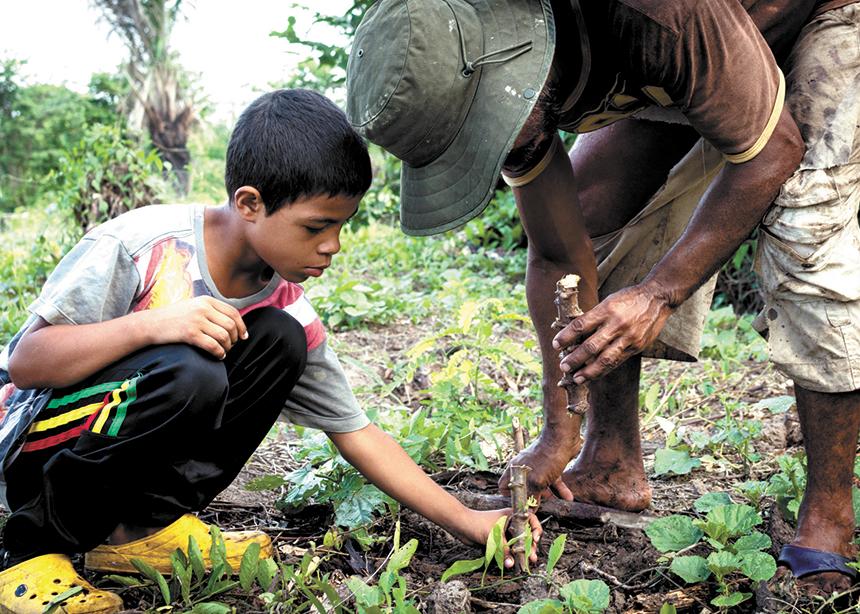
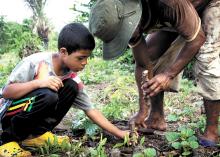

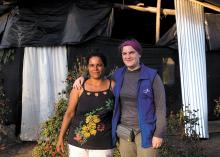
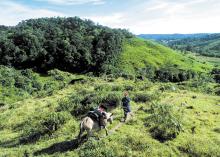
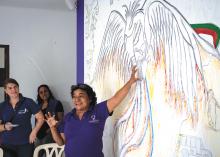
Add new comment
Canadian Mennonite invites comments and encourages constructive discussion about our content. Actual full names (first and last) are required. Comments are moderated and may be edited. They will not appear online until approved and will be posted during business hours. Some comments may be reproduced in print.